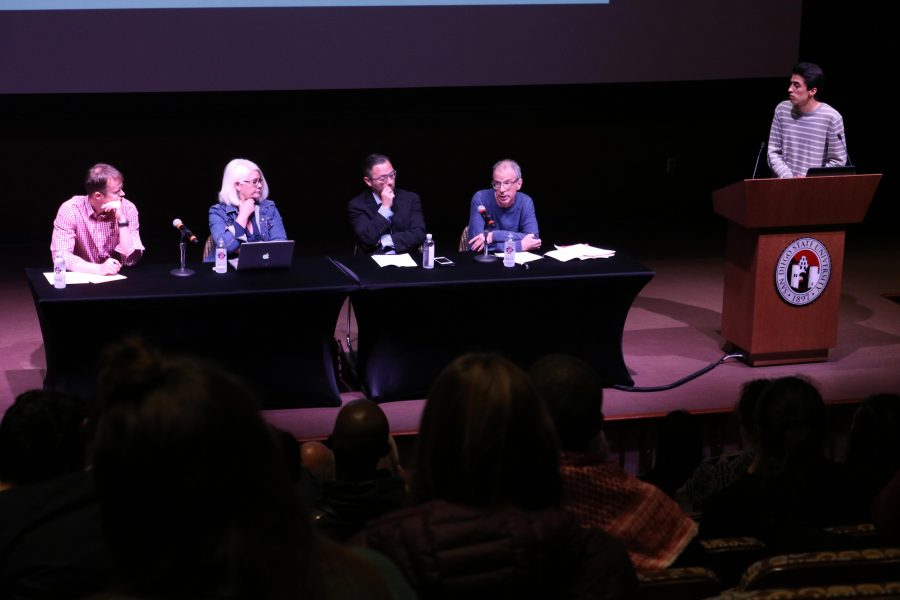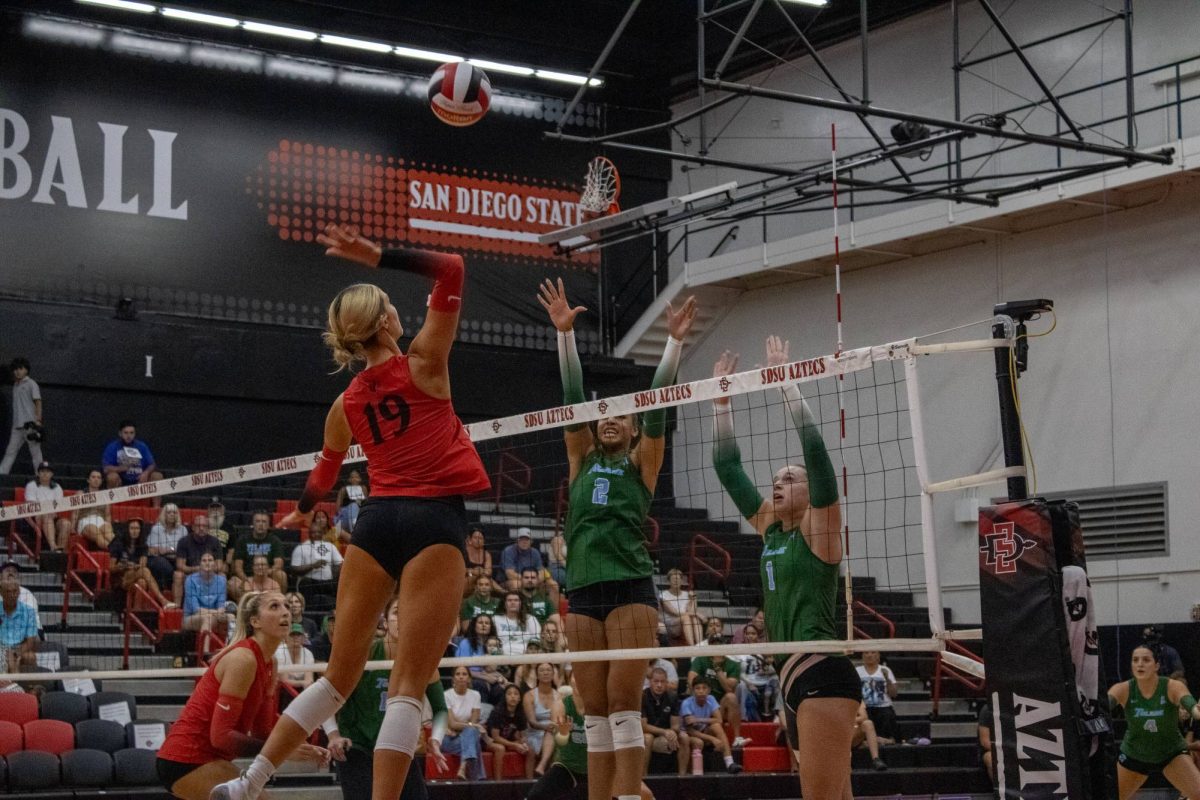San Diego State Students for Justice in Palestine hosted a panel discussion on March 20 featuring four professors to discuss the Boycott, Divest and Sanction movement.
The event was part of Palestine Solidarity Month, a series of events organized by the student group.
Mustafa Alemi, president of SJP, said the goal of solidarity month was to educate and bring awareness to campus.
“Essentially what we’re trying to do is educate SDSU and raise awareness about the plight of Palestinians, and different topics related to it,” he said.
In Alemi’s introductory remarks at the event, he described the BDS movement as one started by Palestinians in order to gain equal rights in Israel and Palestine.
He said BDS stands for boycott, divest and sanction, and it refers to the international movement to apply economic pressure on Israel to comply with international law and grant Palestinians their basic rights.
“Palestinians are asking for us to boycott, divest and sanction Israel until it does three things,” Alemi said.“The first being ending the occupation of Palestinian territories in the West Bank and the Gaza Strip; granting equal rights to all people living within Israel; and third allowing Palestinian refugees, that were ethnically cleansed from their land, to return.”
Alemi also noted that many students at SDSU support the BDS movement, and there is an ongoing student-run campaign for SDSU to divest from companies that may support Israel economically.
In April of 2015, there was a campus-wide referendum on a resolution to divest, and 53 percent of the student body voted in favor of divesting.
However, the resolution required a two-thirds vote to pass.
Four professors, from both SDSU and UCSD, formed the panel: SDSU political science professor Jonathan Graubart, UCSD ethnic studies professor Curtis Marez, SDSU anthropology professor Ramona Perez, and SDSU communication professor Luke Winslow.Perez, who directed a task force to research the Israel-Palestine conflict for the American Anthropological Association, said the issue of BDS is complex.
She discussed her experience researching the conflict with her task force team.
“After we had been researching this issue, we began to realize the degree to which we did not understand the issue,” Perez said. “We interviewed people who were on both sides … Then we came together and we decided we still don’t know enough.”
The panelists discussed the political effects of boycotting Israel, mostly discussing the academic boycott that some universities and academic groups take part in.
Marez served as president of the American Studies Association in 2013, when the group passed a resolution to boycott Israel.
He said the decision has generated further discourse on the issue.
“One of the things that people have criticized the academic boycott for is cutting off a dialogue, whereas in fact, post-boycott, the ASA now has much greater dialogue with scholars than we’ve had in the past — Israeli scholars, Palestinian scholars, never came to the conference, now it’s a place where people come,” Marez said.
A question-and-answer session took place after the panel discussion. Many questions focused on avoiding accusations of anti-Semitism when discussing BDS with critics of the movement.
Graubart said that BDS is not anti-Semitic.
“I’d like to respond to the charge that BDS is anti-Semitic. This has become a common refrain,” he said. “One reason given for calling BDS anti-Semitic is that it’s not just critical of Israeli policies, but it is implicitly anti-Zionist.
Graubart said that while being anti-Zionist and supporting BDS do not necessarily go together, many advocates of BDS are also anti-Zionist.
He said being anti-Zionist means opposing “a nation state that gives added symbolic and substantive status to just its Jewish residents despite the fact that the land is binational in practice.”
“So if you think about this definition of Zionism, which gives advantages to one national subset of its population, it’s hard not to see anti-Zionism as a morally defensible position that cannot be compared to the racism of anti-Semitism,” he said
Marez said that the charge of anti-Semitism from critics of the BDS movement comes from a “collapsing of Jewishness and Israel” which conflates a government with its citizens.
Marez said there is a difference between criticizing a state government and criticizing a people, and they are not coextensive. He used an analogy with the United States, saying that although the United States is a historically white nation, criticizing its government is not the same as being anti-white.
Students for Justice in Palestine held three other talks as part of Palestine Solidarity month, and set up a mock Israel apartheid wall that was displayed outside Hepner Hall March 20 through 23. Topics covered included Latinx solidarity with Palestine and the illegal status of Israeli settlements in Palestine.










